ASEAN Countries - A Look at Technology and Innovation

This is a selection of resources on technology and innovation in ASEAN countries available from the NLB catalogue or the Internet and is not meant to be an exhaustive list.
NLB print and digital resources
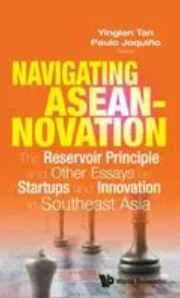
This book is a collection of essays and interviews with founders and investors on what it takes to thrive and win in the Southeast Asian region as a tech startup. The collection covers various aspects of startup growth, digging deep into the critical strategies tech founders and business leaders of different countries and industries can adopt, while embracing the diversity critical to understanding the region.
All rights reserved. Singapore: World Scientific Publishing Co. Pte. Ltd., 2021
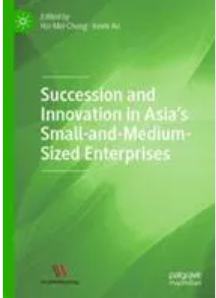
Succession and innovation in Asia’s small-and-medium-sized enterprises
This book documents the distinctive experiences and challenges of small and medium-sized enterprises in Asia. By assessing succession and innovation in SMEs as the two sides of a coin, this book explains how innovations are essential to SMEs in succession. With detailed case examples, the book provides generalized solutions for SMEs to answer the question of how to make succession and innovation simultaneously successful.
All rights reserved. Singapore: Palgrave Macmillan, 2021
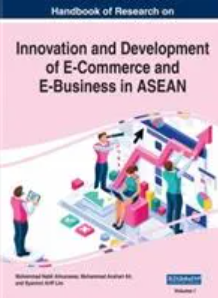
Handbook of research on innovation and development of e-commerce and e-business in ASEAN
As the familiarity of making purchases using smart devices continues to expand, many global and regional investors hope to target the ASEAN region to tap into the rising digital market in this region. This book is an essential reference source that discusses economics, marketing strategies, and mobile payment systems, as well as digital marketplaces, communication technologies, and social technologies utilized for business purposes.
All rights reserved. Hershey, PA: IGI Global, 2021
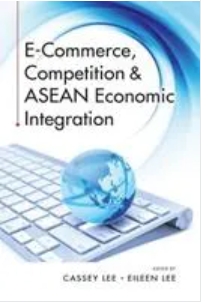
E-commerce, Competition & ASEAN Economic Integration
The e-commerce market has grown rapidly within the ASEAN region in recent years. This trend is expected to continue in the future given the region’s large population base, rising middle-class and improvements in connectivity. This edited volume examines the current state of e-commerce in ASEAN countries. It highlights some of the key domestic and cross-border challenges faced by ASEAN member states in developing e-commerce.
All rights reserved. ISEAS-Yusof Ishak Institute, Competition & Consumer Commission Singapore, 2020
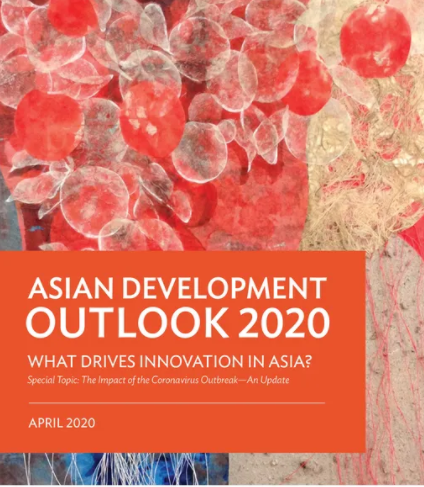
Asian Development Outlook 2020
This book examines how growth prospects in developing Asia have worsened after a disappointing 2019. Signs of incipient recovery were quickly overthrown as COVID-19 broke out in January 2020. Disruption to regional and global supply chains, trade and tourism, leave the region reeling under massive economic shocks and financial turmoil. Across Asia, authorities are responding with policies to contain the outbreak, facilitate medical interventions, and support vulnerable businesses and households.
Retrieved from OverDrive. myLibrary ID login is required to access this ebook.
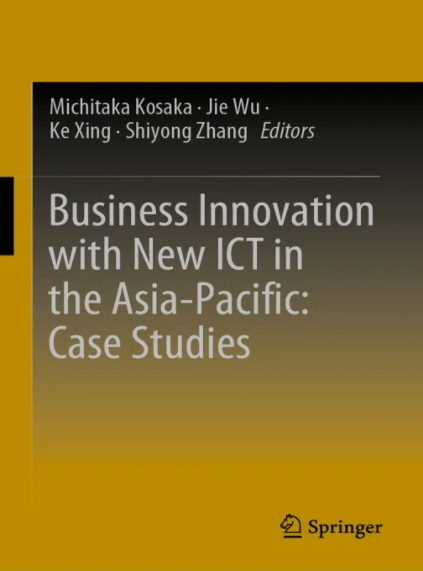
Business Innovation with New ICT in the Asia Pacific: Case Studies
This book clarifies the direction of business innovation using new ICT such as the Internet of things, artificial intelligence, smart phones and cloud computing through a series of case studies on successful trials and advanced businesses in the Asia-Pacific. ICT has been playing an important role in value creation for customers and in profit generation for providers, contributing to various service and business innovation.
Retrieved from OverDrive. myLibrary ID login is required to access this ebook.
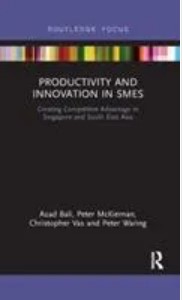
Productivity and innovation in SMEs: Creating Competitive Advantage in Singapore and South East Asia
This book analyses the determining factors behind productivity and innovation amongst Small and Medium Enterprises in Singapore, and within the context of South East Asia, in order to offer recommendations for increasing productivity and aiding economic growth.
Retrieved from OverDrive. myLibrary ID login is required to access this ebook.

ICT and economic development: Comparing ASEAN member states
Does information and communication technology (ICT) development benefit a developed country more than a less developed one? This and other issues such as the size and structure of the ICT sector as well as the intensity of ICT utilisation on a country’s economy are examined by the author through a comparative analysis using the examples of four ASEAN member states namely Indonesia, Malaysia, Singapore and Thailand.
Retrieved from EBSCOhost databases. myLibrary ID is required to access this database.
You may also like
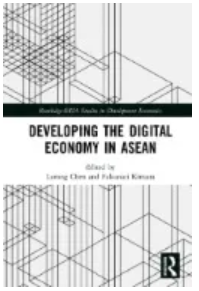
Developing the Digital Economy in ASEAN
This book advances the international debate on the development of e-commerce with focus on merging ASEAN economies. It provides readers insights on Asia’s needs and efforts to improve the regional legal and economic conditions to support e-commerce. This book looks at the rules and regulations on e-commerce, and e-commerce for inclusiveness growth.
Retrieved from EBSCOhost business source complete database. (mylibrary ID is required to access this database)

Southeast Asia Going Digital Connecting SMEs
SMEs play a vital role in Southeast Asia through their contribution to employment and inclusive growth. However, SMEs face significant barriers related to access and use of digital technologies that prevent them from achieving their full potential. For SMEs to go digital, there is a need to deploy infrastructure and promote effective adoption of services and application, as well as, foster innovation.

How Asian Startups Drive Digital Disruption
The rapid pace of innovation is putting emphasis on the word “now.” In the past, companies have delivered products. Today’s customers want solutions. Mobile connectivity continues to grow, and the average speed of mobile connection is going faster as well. The young Asian economies with a high number of mobile devices are willing to try out newer ways of doing business. This is not disruption; it is an evolution.

ASEAN 4.0: What does the Fourth Industrial Revolution mean for regional economic integration?
This report discusses the impact of the fourth industrial revolution which refers to highly disruptive technologies like artificial intelligence, robotics, blockchain and 3D printing on ASEAN countries particularly the benefits and challenges that these technologies will bring and the new approach to policy and governance that ASEAN will need to help it navigate these technologies.

Bridging the gap through digital literacy
In this Asia Vision Series interview, Dr Astrid S. Tuminez examines why digital literacy is critical for individuals to stay relevant in this digital age. She also shared how countries like Malaysia and Vietnam are helping their youths to succeed by giving them digital literacy and skills training.

How Southeast Asia is keeping pace with AI
In this article, Ai Lei Tao looks at the current state of artificial intelligence (AI) technology usage in Southeast Asia and the challenges faced in the wider adoption of AI.

